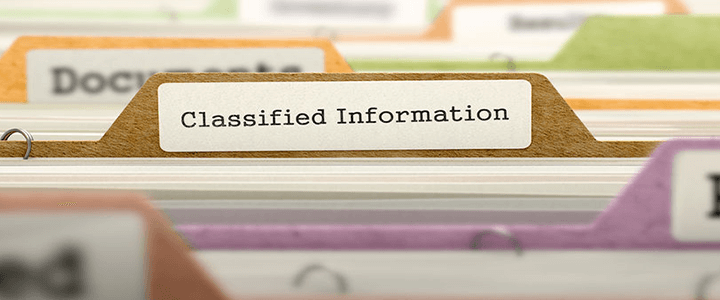On Tuesday, the Senate Intelligence Committee took the testimony of Ambassador and former Senator Dan Coats. Ambassador Coats is President Trump’s choice for Director of National Intelligence, filling the shoes of former Director James Clapper. Here are a few takeaways from that hearing.
Intelligence Community Under Criticism
It’s no national secret that the intelligence community (IC) has lately received public criticism from President Trump that has called into question some members of the IC’s objectivity and analytical excellence. And IC leadership has been vocal, candid, and tactful in its response, as heard most recently among INSA Achievement Awards remarks.
The IC may be heartened by Ambassador Coats’ opinion of America’s intelligence team. Coats testified in his opening statement that he’d “work tirelessly to lead . . . what I believe, and I think most believe, the finest intelligence enterprise in the world. I’m encouraged by what I see with leadership team in place at IC agencies.”
If confirmed, Ambassador Coats will have two large tasks ahead—curbing criticism and serving as a responsible liaison between the White House and the Intelligence Community.
serving national security interests
The IC prides itself on its professionalism and objectivity in analysis and reporting. The question of the day to Coats from several quarters focused on an assurance that Coats would serve national security interests, not partisan politics. Coats reassured the Committee on his “responsibility to present to the President, seniors in the administration and . . . the Congress with the best and most objective nonpolitical and timely intelligence” in support of policy deliberations. “We both recognize that this position is frequently the bearer of unpleasant news,” Coats acknowledged. “But if confirmed, my responsibility would be to provide [the President] him with the most accurate and objective and a-political intelligence possible.”
As good as the IC may be, Coats recognizes that, often, there’s room for better, more efficient processes. As DNI, Ambassador Coats will work to “ensure collaboration and integration across the intelligence elements.” Coats said that the DNI and IC must be “responsible stewards of taxpayer dollars,” and said that he intends to “ask questions about what works and what doesn’t and why . . . . How does each program support our overall goal or strategy and is it duplicative of another effort.” The IC should begin working on this inventory now. Coats assured the Committee that if he is confirmed, he “will look to ask the IC these and many more questions.”
making the best intelligence agencies better
As much as he apparently admires the IC, Ambassador Coats believes that it can be even better than it is. Not necessarily a harsh critique of the IC’s achievements, but rather a sentiment any good leader would espouse to challenge the organization. Coats said, “I intend to push the IC to be the best it can and not accept the status quo when it comes to challenges facing our nation.” “I expect,” he continued, “the IC to be innovative in its approach to shared problems and [design] solutions to solve them.”
role of the dni
Ambassador Coats characterized his role as Director of National Intelligence as analogous to the head coach of a championship football team. Each agency head is responsible for shaping the performance and products in support of the larger IC team strategy. “But,” he said, “every team has a head coach, that leader who walks the sidelines, and while not dictating to each coach [or] assistant coach how do their specific job, pulls each of the specialists together to form a seamless and focused team.” Coats sees his leadership role “to pull all of these team members together under the same game plan to produce the best coordinated and best integrated intelligence we can find.”
Additionally, perhaps working to alleviate any fears among the IC players across the agency about vulnerability to future partisan attacks, Coats assured the Committee that he will be “a champion for the hardworking men and women for the IC” and “represent the dedicated men and women of the office of Director of National Intelligence and broader intelligence community to the best of my ability.”
Ambassador Coats highlighted 6 distinct threats to national security on which most in the IC would agree: the cybersecurity threat, the threat of “radical Islamic terrorism,” tensions in the South China Sea, Russia’s political and military saber rattling that he sees as a “grave concern,” North Korea’s threat that “the intelligence community needs to be laser focused on,” and, finally, the litany of hotspots around the world – Iran, Syria, Afghanistan, and others, among them.




